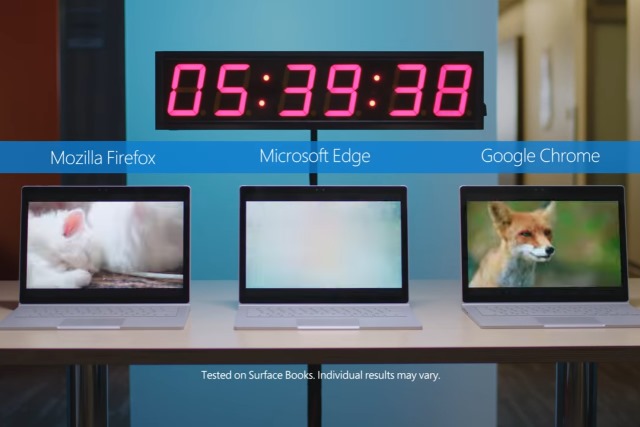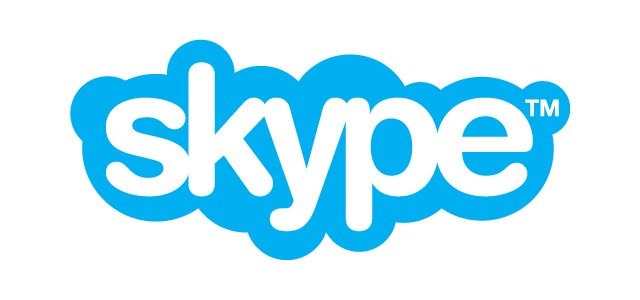
Schedule web pages to open automatically with Open Me Later! for Chrome
If you’re looking to revisit a website later then the obvious solution is to bookmark it. That’s easy, but won’t help much if you forget about the link, or where you saved it.
Open Me Later! is a free Chrome extension which enables scheduling a page to open automatically, as the date and time you specify.

Google Chrome could soon include an ad blocker
It's news that -- on the face of it -- makes very little sense; the Wall Street Journal reports that Google is going to include an ad-blocking feature in its Chrome web browser. For a company that makes so much money from advertising this seems like something of a strange move, but in the light of recent ad controversy, it could be sensible business.
Just last month a large number of big companies started to pull advertising from Google and YouTube after finding that their ads were appearing on sites hosting extremist material. This, coupled with the fact that there is a general backlash against advertising from consumers (hence Adblock Plus pushing its Acceptable Ads program), could explain why Google is keen to be seen to be doing something that will give uses a better ad experience with greater control.

How to enable Dark Mode on YouTube
If you're someone who enjoys watching YouTube at night -- perhaps on your phone in bed -- you'll be all too aware that the site's light color palette can be rather harsh on the eyes. With a little tinkering, you can unlock a hidden Dark Mode which will save your delicate peepers and make nocturnal viewing all the more enjoyable.
At the moment the hack only works in Chrome, but it's likely that Google will bring it to everyone when word spreads. Here's what you need to do.

CrankWheel: easy screen sharing for Chrome
CrankWheel is an easy-to-use Chrome extension which enables speedy sharing of your Chrome tabs or entire screen, without installing any other software.
The service requires a little setup before you start. You must provide your email address, choose a password, a unique name for your "meetings", and so on.

Microsoft shows off Edge's battery usage improvements in Windows 10 Creators Update
The war over which web browser offers the best battery life to laptop users has been waging for some time. Chrome, Firefox and Microsoft Edge have all been battling it out, and with the release of Windows 10 Creators Update, Microsoft thinks it's time to show off the improvements that have been made to its browser.
In Microsoft's own tests -- involving streaming video on a Surface Book -- Edge lasted for over three hours longer than Chrome, and nearly five hours longer than Firefox. These are figures that will almost certainly be disputed in further tests by Mozilla and Google, but for now, Microsoft is giving Edge its moment in the spotlight at the top of the performance pile: 77 percent longer battery life than Mozilla Firefox, and 35 percent longer than Google Chrome.

Google Chrome gets scroll anchoring
Google Chrome is a great web browser for many reasons. Like Firefox, it is a cross-platform program based on (mostly) open source technologies, but compared to Mozilla's offering, its development moves at a much faster pace. Google is constantly pushing the envelope, creating a largely positive web browsing experience.
Today, Google introduces a new Chrome web browser feature that highlights the search giant's forward-thinking. Called "scroll anchoring," it literally "anchors" the web page, preventing the page from scrolling to the top in certain circumstances. In other words, if the user is reading text on a page, it will prevent the page from shifting and interrupting the consumption. The brilliance of this feature is its overall impact -- this annoyance has probably been experienced by most, if not all, web surfers.

Google Chrome's background tabs now use less power
Chrome isn't the most energy efficient browser around, but Google has been working hard to make things better. The latest improvement focuses on background tabs, which are now said to use less power.
The lower power consumption in background tabs is actually one of the main changes that are part of Chrome 57, which Google released earlier in March. The latest version of the popular browser also gained WebAssembly support and dropped the ability to disable plugins, to name a few.

Updated Skype extension for Chrome brings one-click Skype integration to calendars, emails and Twitter
Microsoft is pushing out an update to its Skype extension for Chrome, bringing a host of new features to a range of online services. The update means that you can add Skype call links to emails, calendar events, and social media postings with a single click.
With support for Gmail, Google Inbox, Outlook.com, Google Calendar and Twitter, Microsoft is clearly trying to cover a lot of bases. Twitter is arguably something of a strange choice, but by embracing rival Google services, Microsoft is clearly keen to make Skype more accessible for as many people as possible.

Google Chrome users on Apple macOS get enhanced Safe Browsing protection
Thanks to its Unix foundation, macOS is a rock-solid desktop operating system. While it is not infallible, there are far fewer malware threats for Apple's OS compared to, say, Windows 10. With that said, Microsoft's desktop offering is more targeted due to its monstrous market share.
As more and more consumers buy Mac computers, evildoers will have increased incentive to write malware for macOS. Luckily, users of Apple's operating system that choose to use Google Chrome for web surfing will soon be safer. You see, the search giant is improving its Safe Browsing initiative to better warn macOS users of malicious websites and attempts to alter browser settings.

Google Chrome for Apple iOS is now open source
There is a curious phenomenon on iOS -- Google's apps are often better on Apple's mobile operating system than on Android. It is for this reason that users of the search-giant's services can be perfectly content using an iPhone or iPad.
Google Chrome is a very popular web browser on iOS, with many folks choosing it over Safari. I prefer Apple's own browser, but I digress. The Chrome browser is largely open source, as it is based on the Chromium project -- except for the iOS variant, that is. Today, for the first time ever, the iPhone and iPad version of the browser is open source too.

Kaspersky and ESET top the security charts
The way people access the internet is changing, with a shift towards portable devices, and that in turn has led to a shift in the software they use.
Independent testing company AV-Comparatives has conducted its annual survey focusing on which security products (free and paid) are employed by users, along with their OS and browser usage.

Really, Google? Chrome 57 kills the ability to control and disable plugins
With web browsers being among the most frequently used pieces of software out there, it's little wonder that there is so much concern about security surrounding them. Browser plugins can be a major security worry, and with Chrome 57 Google has taken the strange decision to block users from disabling them or changing their settings.
While this is not the same as preventing users from changing the settings for extensions, or removing them, it still has important implications -- particularly if a security problem should be discovered in a plugin Google bundles with Chrome.

Google Chrome now reloads web pages faster and more efficiently than ever before
Have you ever been extremely dissatisfied with the refresh/reload performance of your web browser? Yeah, me neither. Quite frankly, I never gave much thought to it. Google has noticed, however, and it has improved the reload performance with Chrome 56.
The search giant did not discover the deficiencies of the reload feature on its own, as Facebook apparently tipped Google off to it. You see, the social network noticed that the Chrome web browser was less efficient compared to other browsers, and now Google has rectified it.

Tabby Cat generates a feline friend for every new Chrome tab
There are endless Chrome extensions which replace your new tab page, typically to give you gorgeous photo wallpaper or equip your browser with productivity-boosting tools.
Tabby Cat has a simpler aim: it generates and displays a cute new cat on the background of every tab you open.

WayBack Machine's official Chrome extension gets a major update
It’s barely a week since we looked at the WayBack Machine’s simple Chrome extension, but it’s just had a major update which makes the add-on much more useful.
Clicking the WayBack Machine icon now displays buttons to show the first or most recent archived copies of the current URL, as stored in the WayBack Machine -- perfect for seeing how a site has changed over time.
